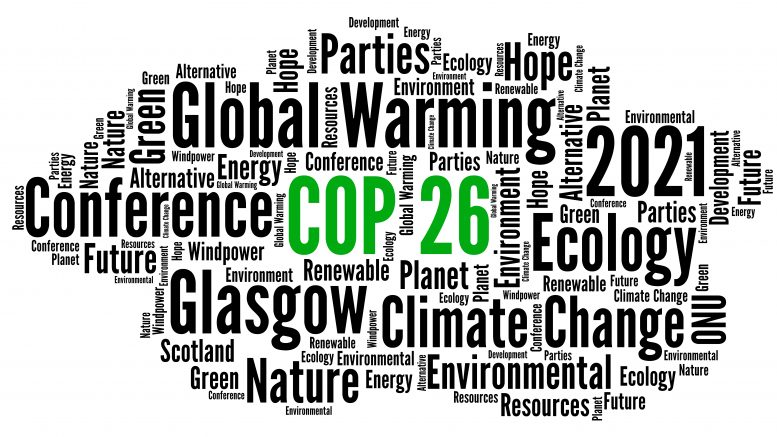The 2021 United Nations Climate Change Conference of the Parties, also known as COP26, will be held in Glasgow between October 31 and November 12, and the mining industry could learn from a famous military speech that was delivered by an Englishman ahead of perhaps the single most important battle of World War II.
Soldiers have always known that it easier to defend than attack, and in medieval combat (especially where castles were involved) the attacking forces generally had to be at least three times larger than the defending army. However, feeling safer and more comfortable is not necessarily a good enough reason to stay on the defensive.
Indeed, attack being “the best form of defence,” is a long-standing military tactic, and on the internet this popular adage is widely attributed (laughably) to George Washington in 1799. However, the maxim that it is better to attack than to receive one, dates back over 2,500 years to when China’s Sun Tzu wrote The Art of War, which is the earliest known treatise on military science.
Certainly the ‘attack’ mantra was well known to Bernard Montgomery, who was a student of military leadership and arguably the most successful British general of the 20th century. He commanded British and Commonwealth troops at the battle of El Alamein in Egypt in October-November 1942.
Prime Minister Winston Churchill defined El Alamein as the turning point of the whole war. This was a battle just to the west of Cairo in which a much defeated Allied army, led by Montgomery (an inexperienced, unusual and heretical commander), turned the tables on the Afrika Korps, the German army that had hitherto swept all before it.
The Afrika Korps was led by General Erwin Rommel, who is generally acknowledged to have been the finest military tactician of the war. Indeed, this was the first time Rommel had been significantly beaten in battle. After the engagement, Churchill wrote “Before Alamein, we had no victories. After Alamein, we had no defeats.”
On taking command of the Eighth Army in the Western Desert during August 1942, Montgomery, who was not even a full general, delivered one of the all-time great military speeches. He started by telling his staff officers, “Every soldier must know, before he goes into battle, how the little battle he is to fight fits into the larger picture, and how the success of his fighting will influence the battle as a whole.”
Montgomery added “One of the first duties of a commander is to create what I call atmosphere, and … I do not like the general atmosphere I find here. It is an atmosphere of doubt, of looking back to select the next place to withdraw, of loss of confidence in our abilities … All that must cease. Let us have a new atmosphere.”
Rather more chillingly, Montgomery exhorted his troops to “stand and fight,” adding “I have ordered that all plans and instructions dealing with further withdrawal are to be burned. If we can’t stay here alive, then let us stay here dead.”
I’m not expecting fatalities, but we need to stop being defensive in the face of criticism of mined metals, the industry’s environmental record and energy sustainability. With last month’s announcement on solar power from the Biden administration and the upcoming 26th United Nations Climate Change Conference of the Parties (COP26) in Glasgow, the timing is right to move onto the offensive.
The U.S. Government announced in September that solar power could provide 40% of the country’s electricity within 15 years — compared with only 3% currently. We need to explain how our industry stands ready to deliver the metals that will be necessary if the U.S. is to replace carbon emissions from an electric grid that at present relies heavily on petroleum products and coal.
Meanwhile, COP26 will be crucial if climate change is to be brought under control. For this 12-day conference, some 200 countries have been asked for their plans to cut emissions by 2030. This follows the Paris Agreement in 2015, under which most nations agreed to keep global warming at under 2°C above pre-industrial levels.
National announcements by mid-November are expected to include plans for a faster switch to electric cars and speeding up the phasing out of coal power. Metal mining is crucial, of course, in this endeavour, and we need to explain the industry’s importance to the 25,000 people that are expected in Glasgow, including the world’s leading politicians, journalists, campaigners and businesses leaders.
Assuming a defensive position is the action of protecting oneself from danger, while going on the offensive is to deflect an assault or cause damage to an opposition.
The mining industry should have the courage of its convictions, and attack. It is long past time we took the initiative.
— Dr. Chris Hinde is a mining engineer and the director of Pick and Pen Ltd., a U.K.-based consulting firm he set up in 2018 specializing in mining industry trends. He previously worked for S&P Global Market Intelligence’s Metals and Mining division.


Be the first to comment on "The View from England: Time to attack"